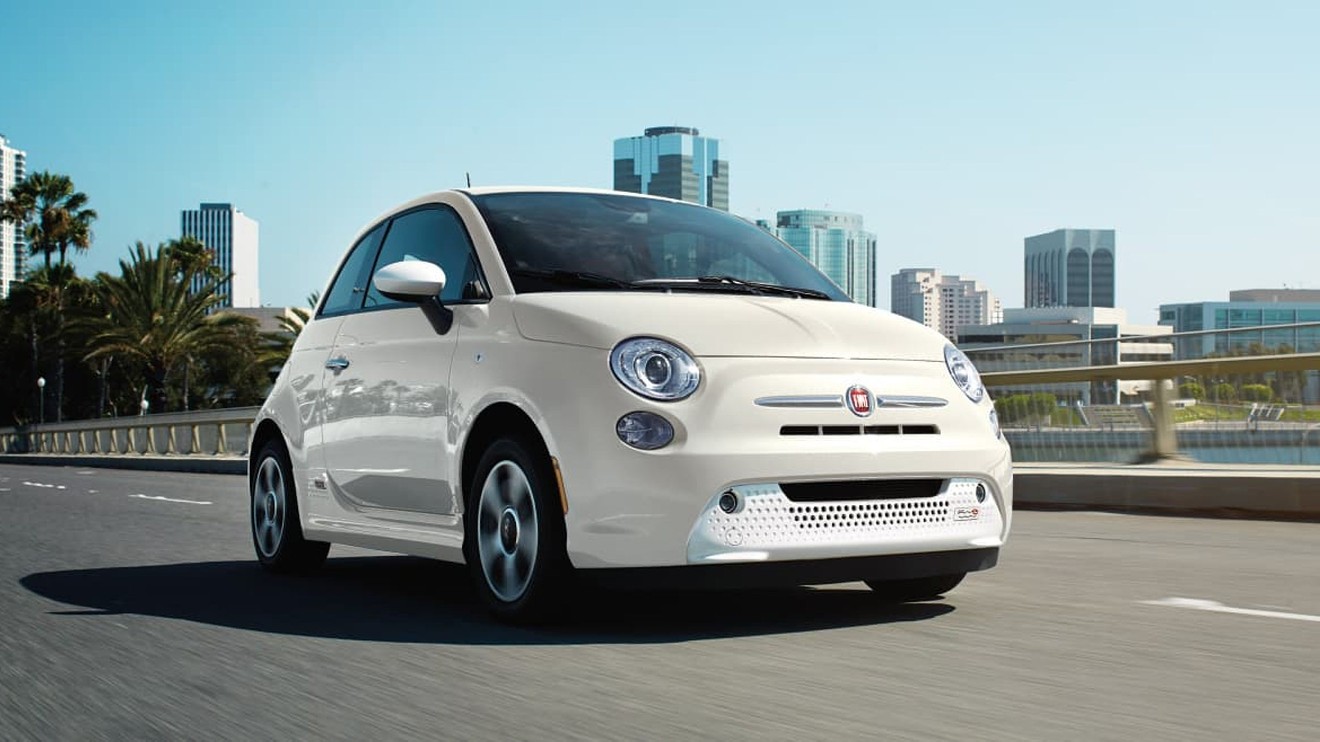Read The Full Article On: Marketwatch
When it comes to teenagers, limited range is a good thing
When autos expert Dan Edmunds was looking for a car for his daughter to use to commute to a local college, he made an unusual choice. He got her a Fiat 500e, an all-electric car. It was such a hit that he later got another one for his wife.
Edmunds’ daughter, Shelby, was easily able to make the 20-mile commute to Chapman University, in Orange, California, by charging at home on household current. “She loved it,” Edmunds says, adding that she enjoyed the lively low-end acceleration — from zero to 30 mph — typically provided by EVs.
“You combine two benefits when you get a used EV,” says Edmunds, a contributor to Autoblog.com. “The cost of used EVs is much less than gas counterparts. And maintenance is much cheaper too.”
Used EVs are a bargain — as long as you understand the limitations, writes Peter Bohr in a recent article in Westways, an AAA magazine. Limited range and worries about battery degradation top the list of his concerns about used EVs.
Here, then, are the pros and cons of shopping the used EV market for your young driver’s first car.
Benefits of a used EV as a first car
Inexpensive to buy. The average EV — excluding outliers such as Tesla TSLA, 5.210% — loses 56.6% of its original value after three years compared with 38.2% for all other vehicles, according to Green Car Reports. This means a lightly used EV could be purchased at a bargain price. And, Edmunds points out that many EVs are initially leased, meaning that now you could snap up a three-year-old electric car with low miles.
Lower fuel costs. Students, and other EV drivers on a budget, will enjoy paying the equivalent of $2 a gallon for gas, according to Southern California Edison. Your local rates, charging options and solar panels on the roof could change that math. Edmunds’ daughter topped up free at chargers on her college campus, further reducing fuel costs.
Less maintenance. “Basically, the only thing you need to worry about is tire pressure,” says Edmunds. “There isn’t even an oil change to forget to do.” AAA’s Bohr points out EVs don’t have parts requiring replacement and maintenance such as fuel injectors, starter motors, spark plugs and timing belts.
Limited range. The often-mentioned “range anxiety” associated with EVs can actually be a benefit for teens with wanderlust. The lower range:
- Provides a virtual leash to prevent spontaneous trips to Las Vegas.
- Teaches young drivers to carefully plan trips within the EV’s range.
- Encourages the use of apps to find remote electric chargers.
- Discourages your teen’s EV from becoming the designated party car for friends who want larger, cooler vehicles.
Promotes environmental awareness. Young people, concerned about climate change, will like the fact that EVs generate less than half the carbon of a gas car, according to the Union of Concerned Scientists. Fueleconomy.gov has a feature to compare the emissions of gas cars with comparable EVs.
A used EV isn’t for everyone. Here are a few factors that might be drawbacks for some younger drivers:
Charging is difficult in dorms or apartments. If your college student is away from home, charging could be difficult — unless you find a very, very long extension cord. High schoolers living at home can easily charge an EV from ordinary outlets.
Fewer choices. According to AAA, there are only 20 EV models available. Most are smaller cars, although there are a few midsize SUVs such as the Kia Soul EV or the Toyota RAV4 EV.
Older EVs have less range. The first EVs on the market in 2011 offered very limited ranges, often under 100 miles. Each succeeding generation has bumped up the range substantially. AAA says that there are now several reasonably priced used EVs that can travel 200 miles or more between charges.
Used EVs might have degraded batteries. An EV’s battery recharging capacity gradually diminishes over time, providing less range. And they are expensive to replace (although so are gas engines). However, most manufacturers have separate warranties for the batteries.
Most used EVs are smaller cars, which might be less safe. The instinct is to put your kid in a tank to protect them. And, in some ways, a larger, heavier car is safer. On the flip side, EVs usually have the latest safety technology to prevent accidents, such as blind-spot warning and rear backup cameras.
Fewer rebates are available for used EVs. Often, rebates and incentives are offered only for new EV purchases and leases. However, some power companies, such as Southern California Edison, still offer cash rebates for used EVs.

